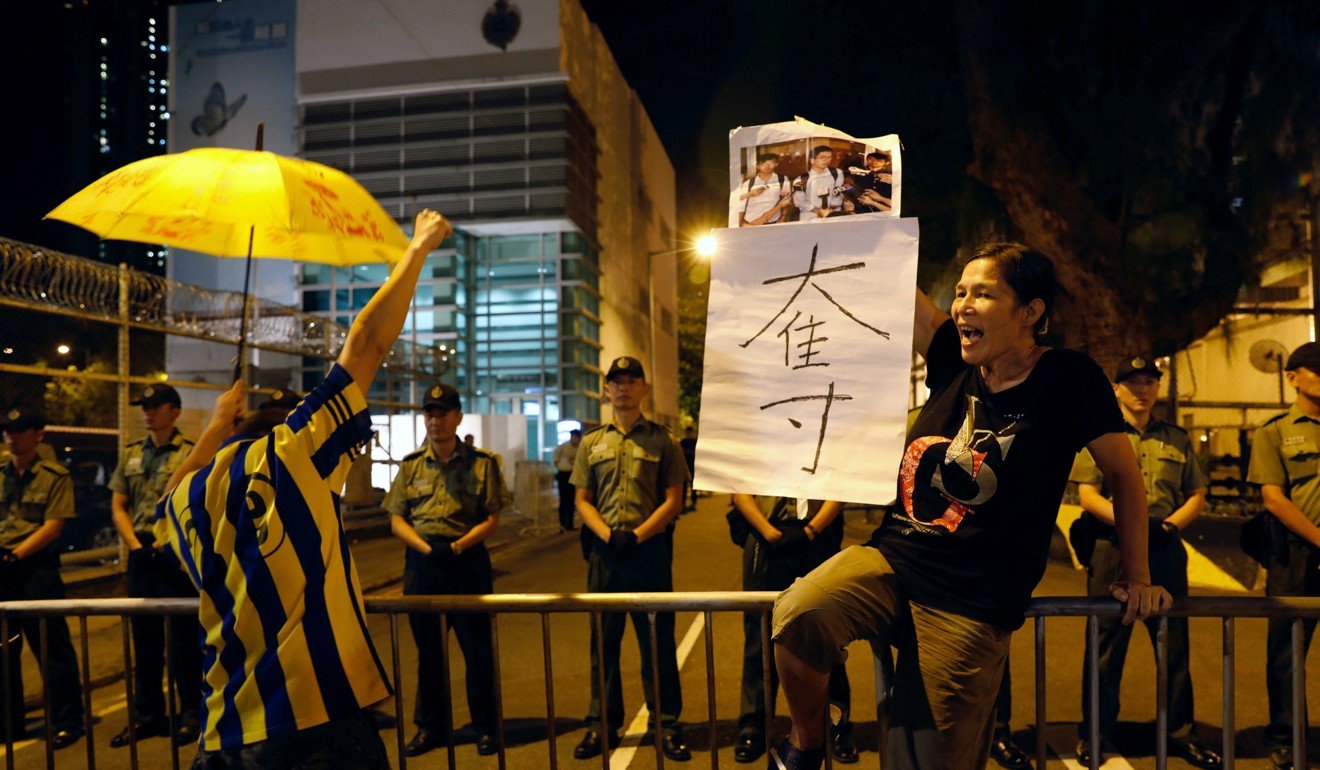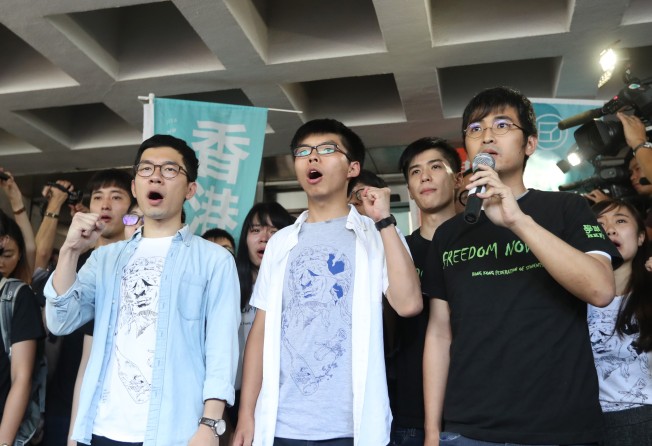
Jailed Occupy trio crossed the line on civil disobedience at Civic Square
Sherif A. Elgebeily says the activists’ decision to push ahead in the face of a physical altercation with security guards was when the peaceful principle of civil disobedience was set aside

When Nathan Law Kwun-chung, on the night of September 26, 2014, called on peaceful protesters “to go into the Civic Square together ... [to] recapture the public space that belongs to us”, he called for “civil disobedience”. But what precisely does this term mean? Did the occupation of Civic Square qualify?
Civil disobedience is the refusal to comply with laws on moral grounds, with the knowledge and acceptance of the repercussions. It is a fundamental expression of individual responsibility – one knows what one is doing and does it anyway. It stems, firstly, from the belief that a law can in some cases be wrong and, second, the use of one’s free will to actively disobey it; it has been used most notably by Gandhi and Martin Luther King.

Despite defending that their actions should not violate the law, they were aware that these did and would have consequences, and that court sentences would need to be suffered. Hence, they believed that what they were engaged in was legitimate civil disobedience: legally wrong though morally right.
Student leaders jailed for storming government buildings
However, one cannot group all forms of political protest under the umbrella of “civil disobedience”. One of the elements that sets it apart from terrorism is its peaceful nature, as it aims to address injustice without harm to citizens or public property. From a state security perspective, too, violence can never be accepted as a viable means to achieve political goals.
Although the trio called for non-violent means throughout the attempt to occupy Civic Square, their actions and those of the protesters undoubtedly ran contrary to this intention. Based on previous experience, they expected no physical attempts to stop them from entering the forecourt. However, as Law testified, “if the security guards tried to stop them with their bodies, the participants would . . . remain standing in their original position, [and] therefore their action would not cause any injuries to the security guards”. This in itself suggests an awareness that their intended actions had, at least in theory, the capacity to cause damage and/or injury.
Civil disobedience would have been to follow this plan, but the decision to push ahead in the face of a physical altercation tipped their actions over the line. Politics aside, Hong Kong’s social order, the rule of law, and our societal norms dictate that their actions must have consequences.
Dr Sherif A. Elgebeily is director of the Centre for the Study of International Peace and Security in London